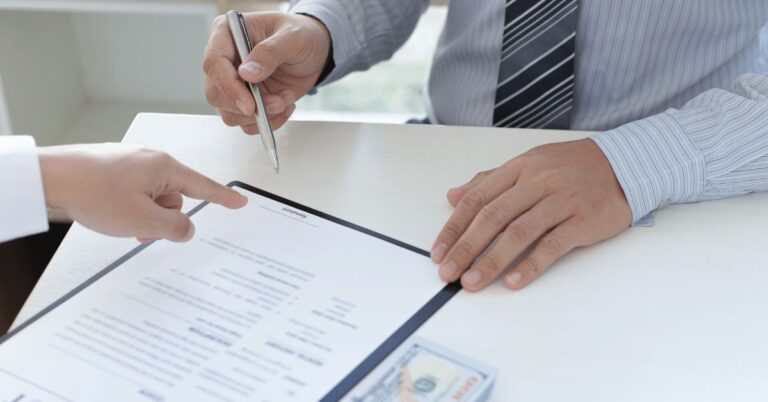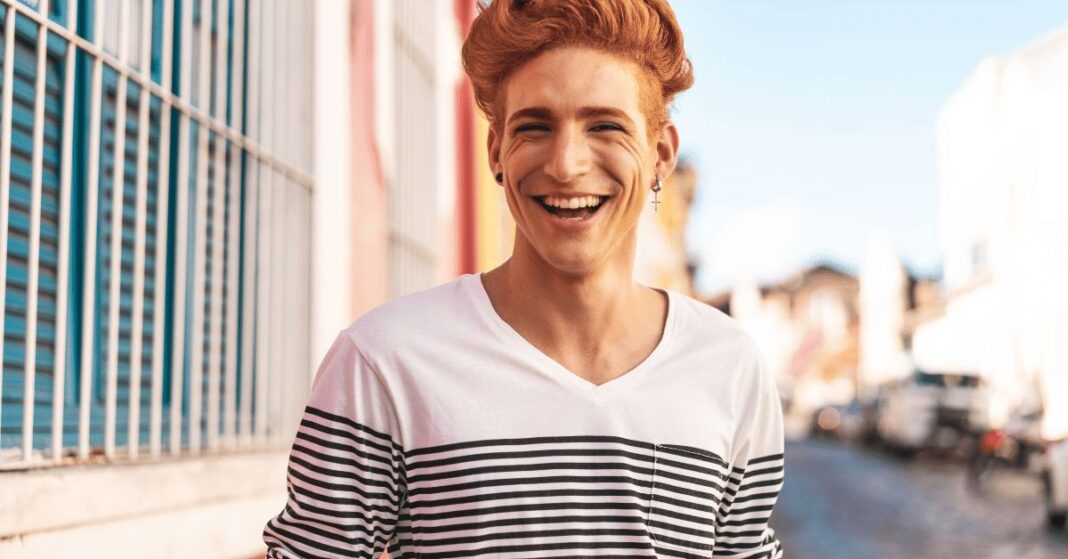Introduction
While Iran has banned forced gender reassignment surgeries, the Islamic Republic does not formally force the procedure on gays. The founder of the Islamic Republic issued a fatwa in the 1980s, after being moved by a story of a woman trapped in a man’s body. Iranian doctors are instructed to tell gay patients they are sick and refer them to clerics to strengthen their faith. The Iranian government has a long history of ignoring human rights violations against gay people.
Bringing gay life into convergence with that of the straight majority
The era of institutionalized discrimination against homosexuals is now history. The late modern western cultural narratives on human life have absorbed homosexuality. As a result, society imposes its norms on its members, urging them to live as themselves and suppress strong sexual desires. Such attitudes have contributed to institutionalized discrimination against gays and lesbians. However, the era of institutionalized discrimination is now history, and gays can once again participate in public life.
Influence of smaller groups on LGBTQ people
The Influence of Smaller Groups on LGBTQ People – Is religion a protective factor? While religious affiliations do help to promote a healthy lifestyle, they are less supportive for LGBTQ youth than their heterosexual counterparts. Additionally, religion may foster internalized homophobia, which is irreconcilable with sexual identity. The larger social environment may also have a profound impact on the well-being of LGBTQ youth. One study found that youth who lived in social environments that were unsupportive to LGBTQ people had a 20% higher chance of attempting suicide.
The Influence of Smaller Groups on LGBTQ People: A recent survey found that nearly one-third of LGBTQ respondents reported that their sexual orientation has affected their choices in housing, daycare, and healthcare. Interestingly, transgender respondents were more likely to avoid certain groups, such as law enforcement. Still, the study’s results may not be a comprehensive study. More research is needed to understand how small groups affect LGBTQ people and how to counter them.
In the youth focus groups, over half of the participants reported experiencing negative feelings about their sexuality. In addition, they often reported verbal harassment and physical abuse. They were frequently ridiculed for their appearance or perceived sexual orientation. Some youth fought back against harassment and advocated for LGBTQ people or LGBTQ activities. However, few reported any involvement of school personnel in such incidents. While the negative effects of smaller groups on LGBTQ people are real, they still represent a significant percentage of the population.
Human rights organizations' work
The U.N. Secretary-General, Ban Ki-moon, spoke at an event in New York City celebrating human rights defenders in December 2010. He called on individuals to stand up for the rights of all people and specifically referred to defending the rights of people jailed for their sexual orientation. His speech made gay rights a central human rights issue and placed it on the United Nations’ agenda. But, he didn’t stop there. Human rights organizations are also fighting for LGBT rights, which have been largely ignored by the international community.
In a subsequent meeting, the European Parliament passed a resolution recognizing the Humanist Federation as a non-governmental organization, and the Humanist Federation as an international association. The European Humanist Federation (ELGA) is an organization based in France that promotes secularism and humanist values in the continent, and works for social and cultural progress. In the same meeting, the United States’ representative called for ILGA to be granted consultative status.
The United Nations Human Rights Council has adopted a resolution on LGBTI rights, which calls for greater recognition of the equality of these groups. Argentina, Brazil, Uruguay, Chile, Mexico, and Colombia are members of the UN LGBTI Core Group, an informal cross-regional body of UN member states. The UNAIDS Agency studies the health and rights of LGBTI people, while the World Health Organization (WHO) advocates for increased awareness of homophobia in education.
Human rights group's research on harms stemming from discrimination
A new study by Human Rights Watch documents the harmful effects of gay forcing in Africa. The report shows that 27% of male teenagers identify as LGBT leave their homes because of quarrels with family members. The discrimination experienced by LGBT people is largely caused by families and parents. Human rights groups report that a large proportion of harms stemming from gay forcing are caused by social stigma.
In Ghana, the Chief Executive Officer of the Mental Health Authority, Dr. Akwasi Osei, has called for criminalization of homosexuality. President Akufo-Addo took office in 2017, but Human Rights Watch could not verify his position on homosexuality. While the new president reportedly has made a public statement supporting gay forcing in the country, this did not change the way the government has viewed homosexuality.
Many lesbians report experiencing harassment and being driven from their homes. One woman was chased out of her home with a machete and is now unable to visit her daughter. Most lesbians must hide their sexuality from their families and are forced to marry a man who will not accept their orientation. Oftentimes, such attitudes are justified by conservative religious interpretations.
The research was based on interviews with three representatives of the LGBT community in Ghana, including an Assistant Commissioner of Police. Human Rights Watch also interviewed three diplomats in Ghana and an Accra-based human rights organization. These individuals provided interviews in English and Ga. The interviews were conducted with verbal informed consent. Human Rights Watch did not pay participants for their time and effort, but did reimburse them for travel expenses if they had to drive a long distance. The identities of these interview subjects have been withheld to protect their confidentiality.
Gay Forcing in Iran and Other Countries
The Iranian government does not force gender reassignment on gays, though in the 1980s, the founder of the Islamic Republic issued a fatwa, or religious ruling, allowing the procedure to be performed. A woman trapped in a man’s body prompted his decision. Doctors are told to tell gay patients that they are ill and refer them to clerics for further guidance. Clerics, meanwhile, tell them to strengthen their faith.
Conversion therapy
The practice of conversion therapy is unethical and can cause substantial harm to the patients involved. The IFEG statement outlines the effects of chronic stress on the patient’s body. These effects include stomach ulcers, skin diseases, migraines, eating disorders, sleep disorders, and more. In addition, homosexuality is a mental disorder and must be treated as such to avoid further health problems. This method has not been shown to cure the patient of his or her sexual orientation, as reported by Human Rights Watch.
Human Rights Watch interviewed 17 people who underwent conversion therapy. Of the seventeen interviewed, fourteen were treated at public health facilities and three in private clinics. In all, these individuals said they were “treated” by staff in licensed health care facilities. The clinics allegedly displayed posters with price quotes and certificates for different treatment packages. In addition, the patients said that their parents feared the public’s reaction to the treatments. Some parents may be unaware of the reporting process, or believe the therapy is harmless.
Coming out to oneself
Coming out is a recurring, natural desire to reveal oneself in a new situation. In fact, homosexuality is the first appearance of the species and the most important moment for it. However, many people struggle with this decision for various reasons. Some struggle with the idea of coming out to oneself after having been forced to live in a closet. Some struggle with the stigma of homosexuality and the societal pressure that comes with it. Other people are simply uncomfortable with the idea of being visible to everyone.
The process of coming out is usually gradual, with a focus on embracing gender identity and expression, as well as non-hetero-normative sexual orientation. Coming out to oneself has many names, including personal epiphany, soul-searching, and self-acceptance. While many people come out to themselves in their late teens and early twenties, there are also cases where the process has taken longer than expected.
Economic efficiencies
The Economics of LGBT Inclusion: Are there costs? A growing number of surveys document the damaging impacts of LGBT exclusion. They include employment discrimination, health disparities, and educational exclusion. Inequality in these areas costs the economy money, due to underinvestment in human capital, lost labor time, and lower productivity. Further, economic harms of discrimination also have macroeconomic effects, dampening macroeconomic growth.
Moreover, LGBT individuals are less productive, resulting in lower productivity, and possibly even working in the informal sector or on the side. Their employers may not accept them or give them the proper identification documents. They may even lose their jobs if they are “outed” at work. This discrimination decreases the output of labor and reduces the incentive of workers to invest in human capital. After all, greater training does not necessarily translate into a higher wage or promotion.
Self-hatred
While homophobia has been studied extensively, few studies have examined the role of gay forcing on self-hatred. While it is difficult to determine the exact causes of self-hatred, there are several possible contributors. While homophobic acts can be very harmful to an individual, these actions are extremely stressful. In some cases, they can even lead to a lifelong struggle with homophobia. If you or someone you know has suffered from homophobia, you should consider the following strategies to combat this condition.
First, therapists should be knowledgeable about how gay-hating affects the individual. They should be aware of how this affects self-esteem. This is because a self-hating person is likely to attribute their own problems to their sexuality. Consequently, they may end up believing that they are inferior to others based on their sexuality. Moreover, such a person will be more likely to develop depression, anxiety, and self-destructive behaviors if the therapist aligns with societal prejudices.
Depression
The stigma that gay people face has a profound impact on their mental health. A GQ reader survey published in its 30th anniversary issue revealed that 45% of gay, bi, and trans men felt life was not worth living and 34% considered suicide. Even more startling is that 5% of these men attempted suicide. According to Meg-John Barker, senior lecturer in psychology at the Open University, this finding explains why depression among gay youths is so high.
Research has shown that depression among gay and bisexual men is higher than in the general population. Researchers have cited the minority stress theory, which explains the psychosocial effects of conflict with a heteronormative social environment. The stress caused by the negative feedback from peers and other adults leads to internalised homophobia, leading to deep conflict, poor self-regard, and expectations of rejection. These feelings of shame can even lead people to hide their sexuality.

Homophobia
The anti-gay sentiment is typically traced to misogyny, toxic masculinity, and hidebound religious teachings. But white supremacy has played a large role, too. Throughout history, homophobes have used friends of color to justify their homophobia. Today, homophobia is a systemic display in our society. We must challenge this behavior to create a more inclusive society.
One approach is to look at internalized homophobia and the likelihood of coming out in the gay community. The perception of being part of a safe community can help LGB individuals overcome internalized homophobia and make more positive social comparisons. But increasing levels of internalized homophobia can make the gay community less attractive. Despite this possibility, few studies have examined the relationship between internalized homophobia and gay community affiliation. These results suggest that the level of homophobia and the likelihood of coming out in the gay community may have a direct impact on the likelihood of coming out in a threatening environment.
Despite the prevalence of homophobia, a minority of people in the United States still suffer from discrimination based on their sexual orientation. The numbers of gay people have not increased dramatically. According to Gallup, the number of people who identify as gay will be only slightly higher in 2021 than they are today. It is not a surprise that people who identify as gay are targeted in this manner, but this is a direct result of the anti-gay agenda.
86 percent increase in homicides of LGBTQ people since 2016
The National Coalition of Anti-Violence Programs, or NCAVP, has released its latest Crisis of Hate report, showing a staggering 86 percent increase in homicides against LGBTQ people in the past year. According to the report, 52 victims were murdered last year, most of whom were transgender women, but the victims also included non-transgender men. In addition to the rise in homicides, hate crimes against LGBTQ individuals rose by 5 percent in 2016. In 2016, FBI researchers studied 6,063 hate crimes, with 17 percent of victims being targeted because of their sexual orientation.
The increase in anti-LGBTQ hate crimes follows a corresponding rise in anti-LGBTQ homicides. The increase was attributed to the underlying trends in hate crimes. Although the United States government has passed legislation to improve data collection, there are no specific laws or policies that address anti-LGBTQ hate crimes. However, community-based organizations have a valuable role in reporting these crimes.
Human rights impact of Family Resilience Bill
A controversial draft of Indonesia’s Family Resilience Bill was recently rejected by the Legislation Body of the House of Representatives. The Legislation Body is a panel comprised of five parties who control two-thirds of the seats in the chamber. In order to pass a bill, it must have a majority vote in order to be passed. However, this bill has received a mixed reaction from civil society groups and lawmakers.
This study focuses on the abuses children suffer in their home countries, as well as in transit. While some of the children cited harm from U.S. immigration and border enforcement, this is likely to compound the harms. The study also examines the physical manifestations of trauma and the resilience factors of children. The researchers also outline recommendations for legislative changes to help prevent further abuses. It is important to note that the Family Resilience Bill will not have any immediate effect on addressing underlying societal problems, but will help families rebuild their lives after a crisis.






